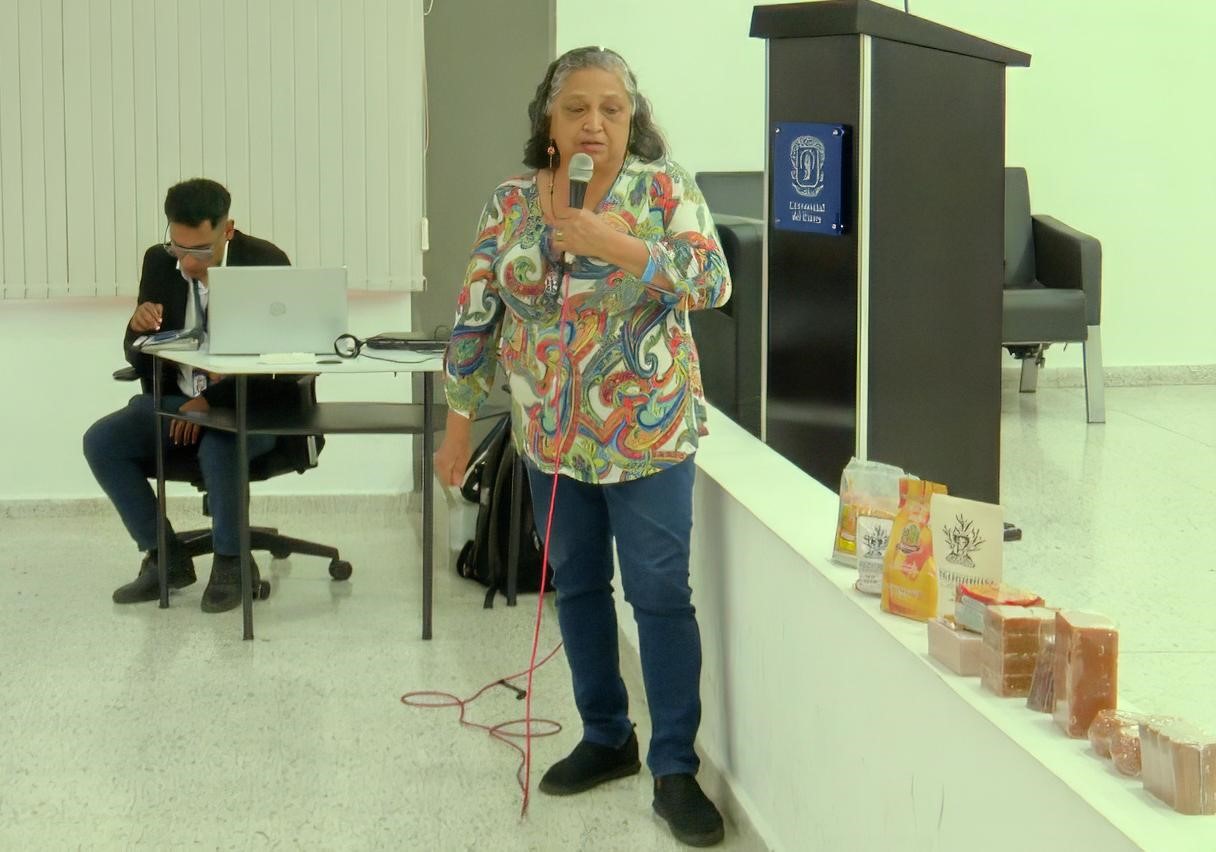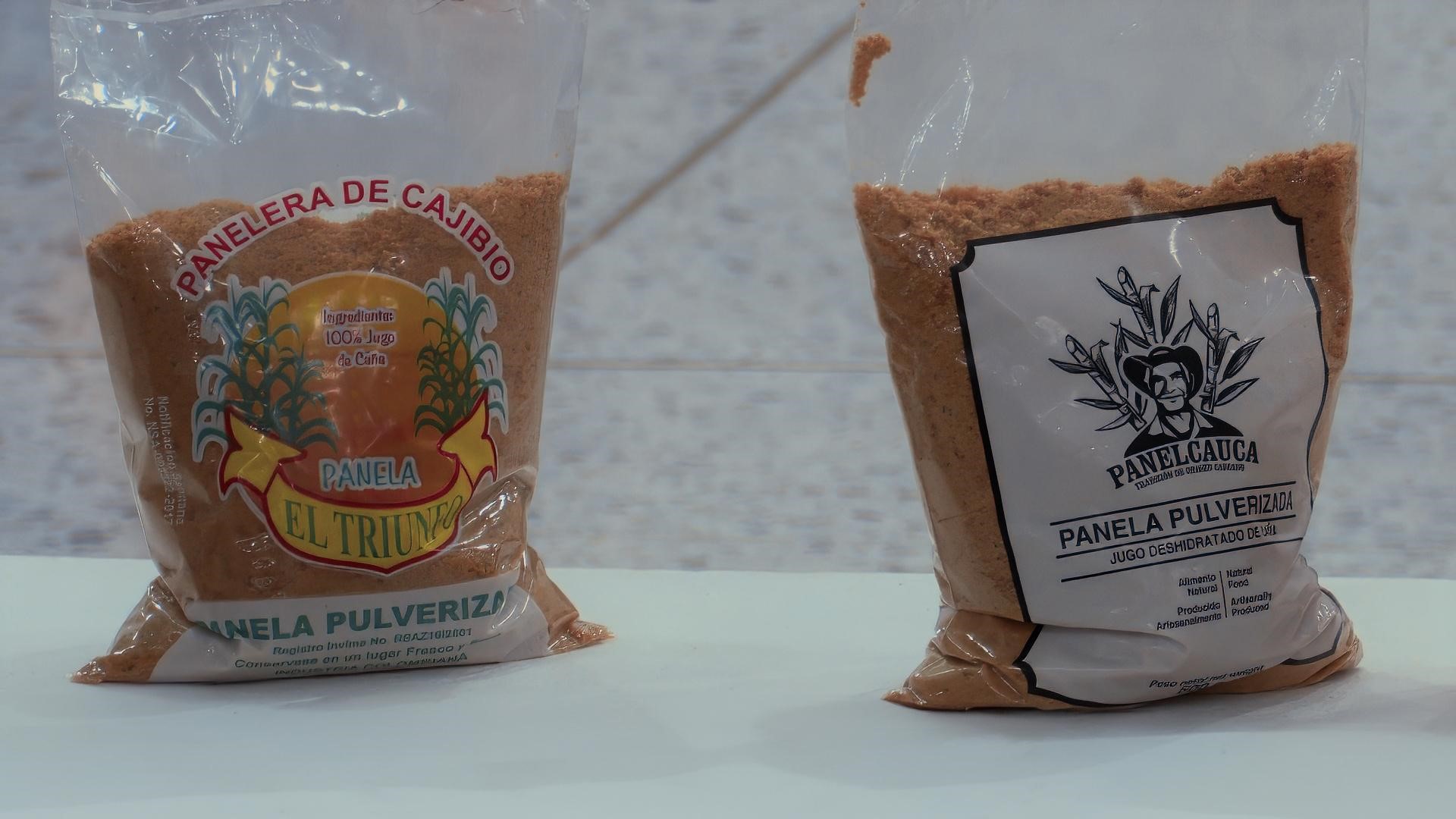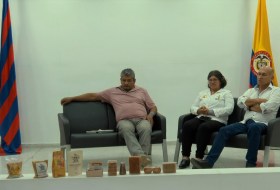News
What do you know about the panela sector in Cauca? This is how we promote, from academia, meeting spaces filled with sweet tradition.
As part of Research Week, and with the firm purpose of creating a space for dialogue and reflection, the event 'Sweet Tradition, Bitter Reality: Discussing the Challenges of the Panela Sector in Cauca' took place. Organized by the Research Group on the Economics of Inequalities, this event was held on September 26 in the main auditorium of the Faculty of Accounting, Economic, and Administrative Sciences at our Alma Mater.
Who hasn’t enjoyed a delicious aguapanela with cheese, a melcocha, a piece of panela, or a pata jelly? All of these delights, and many more, are the result of the hard work of the panela producers in the region, who strive daily to ensure that blocks of panela reach the comfort of our homes. As a higher education institution located in Cauca, it is essential to contribute to the strengthening of this productive sector, especially in the context of implementing the current Institutional Development Plan, titled 'For an Excellent and Solidary University,' where we have committed to being supportive of our environment and its inhabitants. Therefore, it is crucial to strengthen ties with the territory through research and the production of knowledge generated in Unicaucan classrooms—something to be truly proud of!

Provided photo
Thus, as part of the Research Week Conexión VRI 2024, we witnessed the event 'Sweet Tradition, Bitter Reality: Discussing the Challenges of the Panela Sector in Cauca,' an engaging space where our Vice Chancellor Francisco Pino emphasized the importance of such dynamics to connect research with communities. 'Research Week aims to create meetings around the outcomes of research projects and how these can be socialized and transferred to communities through innovation and the social appropriation of knowledge.'
During the day, the challenges faced by small panela producers were discussed, including issues related to marketing, the use of appropriate technologies, and adaptation to current market demands. The 40 participating panela producers from the municipality of Cajibío, along with their families, shared their experiences, asking questions about cane care, the types of mills used, and export opportunities—an enriching exchange of knowledge that literally sweetened the day.
Professor Jhonatan Zambrano from the Economics program at the University of Cauca highlighted that 'This is a conversational event, as we have seen, with panela producers from the municipality of Cajibío, within the framework of project VRI 5969. What is happening is that the panela producers are sharing their experiences and asking questions regarding the production and marketing of panela. In this space, they are being provided with skills to make informed decisions about their production, especially if they wish to export.'

Provided photo
For his part, Daniel Ruiz, a member of the panela producers' organization Ascañigan, expressed gratitude for the opportunity provided by the university, stating, 'This is the first time we have these spaces for small panela producers. While we preserve our ancestral roots, we must adapt to the current market. Collaborating with the University of Cauca gives us the chance to improve our results and quality of life.
The voices of women producers were also present, as Flormelida Ipia, a member of an Agromutual from Cajibío, shared her perspective on collective work: 'As women, we saw the need to organize ourselves to generate income. We focus on diversifying production, including products like milk panela, which has been better valued than traditional panela.'
Undoubtedly, this event made a significant impact by promoting collaboration between academia and panela producers in Cauca, laying the groundwork for future meetings that foster the well-being and development of the sector. It also reaffirmed the commitment of the University of Cauca to continue driving initiatives for dialogue, research, and technical support, enabling panela producers to not only highlight their challenges and propose joint solutions but also to build support networks. The University of Cauca, under the principle of social responsibility, will continue to promote these types of interactions that strengthen the social and economic fabric of our department, aligning with our mission to contribute to regional development from a perspective of solidarity and excellence.
So, now you know, the next time you decide to sweeten your coffee with panela or enjoy a related product, think about the entire process and the teamwork that makes this staple item accessible to you.
Written by: Communications Management Center.


